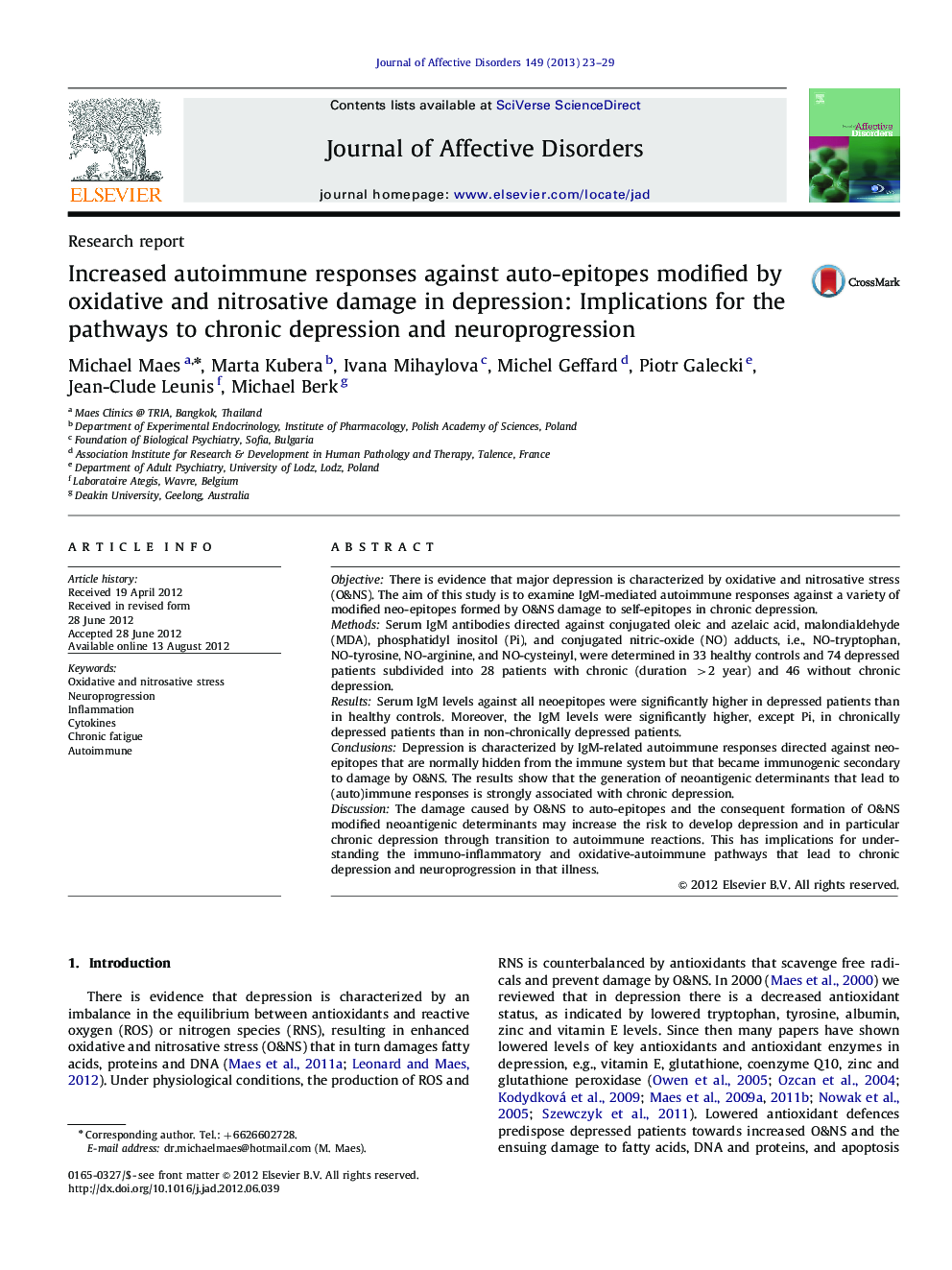| Article ID | Journal | Published Year | Pages | File Type |
|---|---|---|---|---|
| 6234561 | Journal of Affective Disorders | 2013 | 7 Pages |
ObjectiveThere is evidence that major depression is characterized by oxidative and nitrosative stress (O&NS). The aim of this study is to examine IgM-mediated autoimmune responses against a variety of modified neo-epitopes formed by O&NS damage to self-epitopes in chronic depression.MethodsSerum IgM antibodies directed against conjugated oleic and azelaic acid, malondialdehyde (MDA), phosphatidyl inositol (Pi), and conjugated nitric-oxide (NO) adducts, i.e., NO-tryptophan, NO-tyrosine, NO-arginine, and NO-cysteinyl, were determined in 33 healthy controls and 74 depressed patients subdivided into 28 patients with chronic (duration >2 year) and 46 without chronic depression.ResultsSerum IgM levels against all neoepitopes were significantly higher in depressed patients than in healthy controls. Moreover, the IgM levels were significantly higher, except Pi, in chronically depressed patients than in non-chronically depressed patients.ConclusionsDepression is characterized by IgM-related autoimmune responses directed against neo-epitopes that are normally hidden from the immune system but that became immunogenic secondary to damage by O&NS. The results show that the generation of neoantigenic determinants that lead to (auto)immune responses is strongly associated with chronic depression.DiscussionThe damage caused by O&NS to auto-epitopes and the consequent formation of O&NS modified neoantigenic determinants may increase the risk to develop depression and in particular chronic depression through transition to autoimmune reactions. This has implications for understanding the immuno-inflammatory and oxidative-autoimmune pathways that lead to chronic depression and neuroprogression in that illness.
